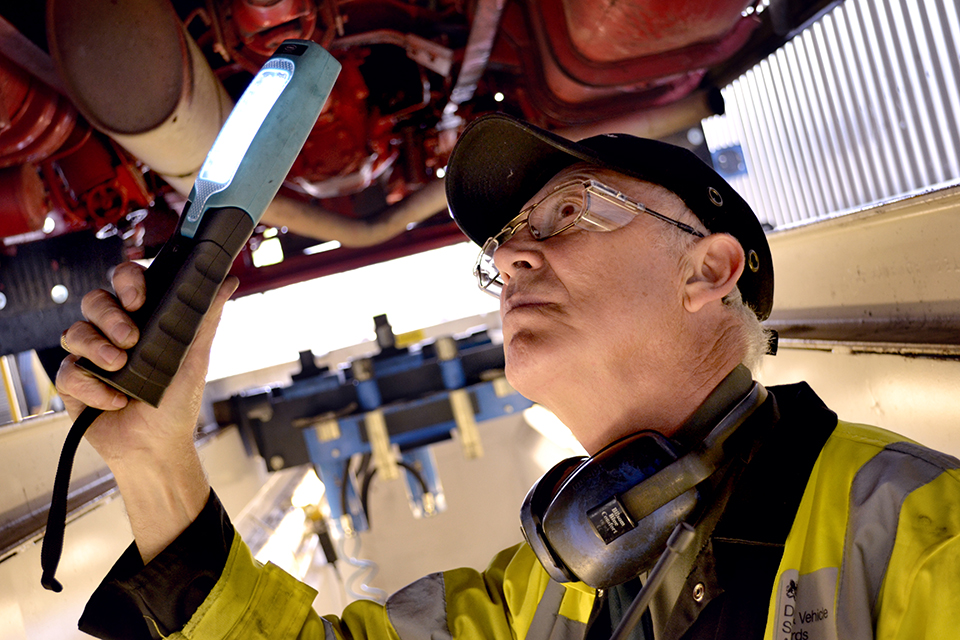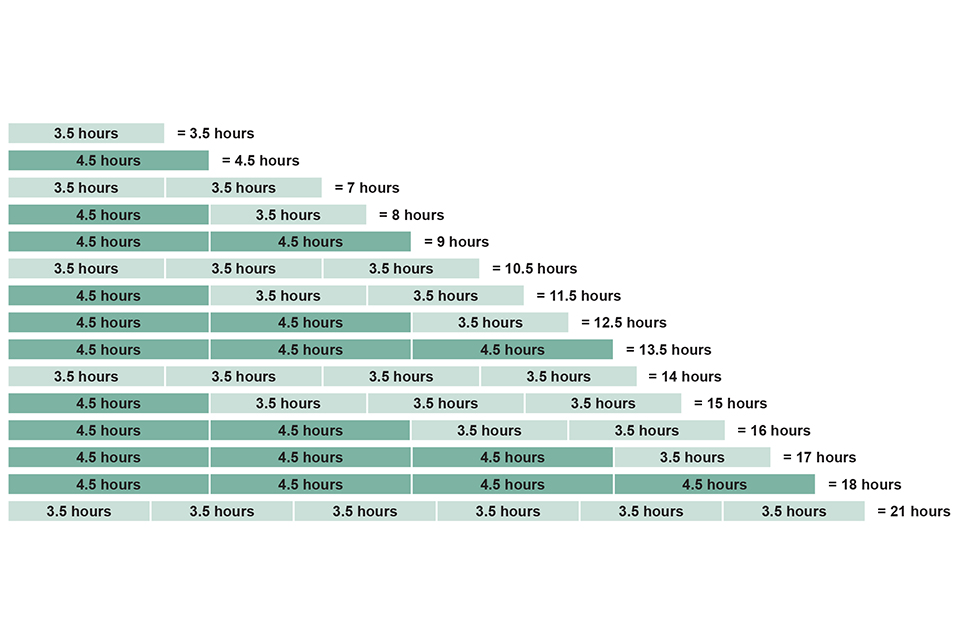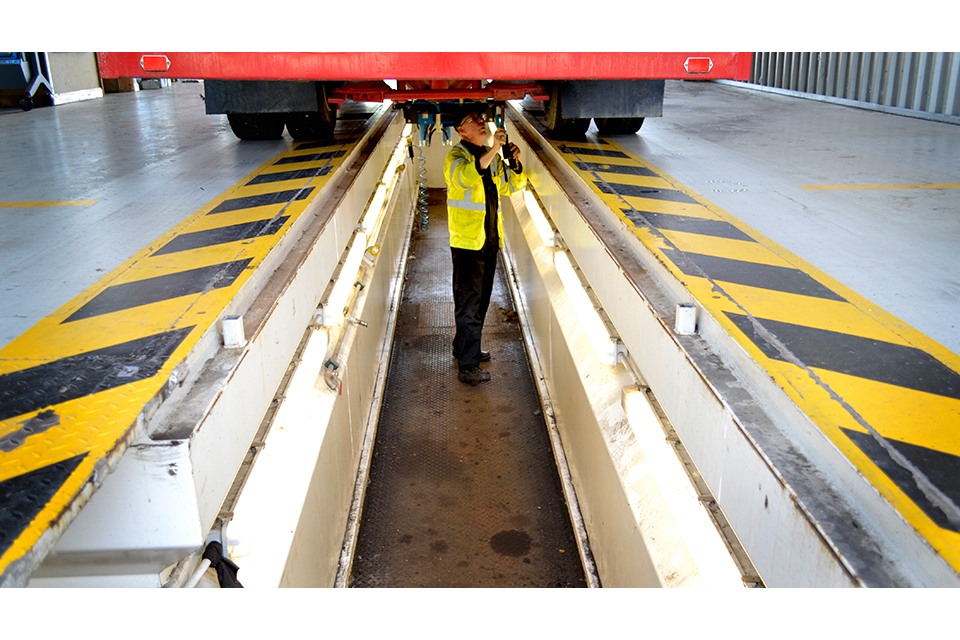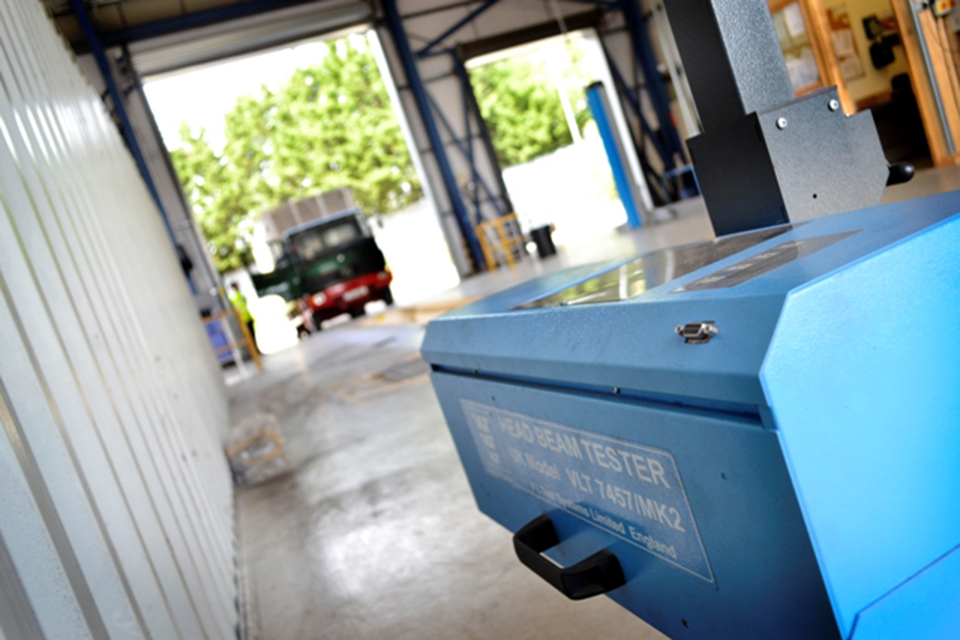ATF e-bulletin issue 10: January 2015
Published 12 January 2015
Applies to England, Scotland and Wales
More than 420 delegates attended the latest round of Regional ATF Forums in November, making them the most successful ever. With a wide-ranging programme covering the latest news on Next Generation Testing (NGT), testing ADR and gas powered vehicles, fee reductions, recent changes to legislation and the Driver Certificate of Professional Competence, there was something of interest for every attendee at each of the 9 venues.
You can read more about some of the themes covered at the Forums in this edition of the ATF Bulletin. Also included are some of the recurring themes that we covered in the open debates.
1. Next Generation testing update

Next Generation Testing represents a transformation in the way DVSA will deliver heavy vehicle testing.
“We have been through the process of listening to the industry and learning from the pilot,” said Steve Jordan, NGT Head of Operations. “We believe that we have developed an offer that can deliver what ATFs need now and be flexible enough to respond to any changes in the industry.”
Elements of that offer are:
- a tailored service which now includes 3.5 and a 4.5 hour testing sessions
- options for quarterly, rather than annual, scheduled bookings
- one central point of contact for bookings and queries
- improvements in test results capture and draw down from pre-funded accounts
- individual, tailored support for your business through new roles
- an improved, customer-focussed approach.
“We expect different aspects of the offer will appeal to different businesses, and to an extent that is what NGT is all about. It isn’t a one size fits all approach; we are giving ATFs choice and as far as possible tailoring our service to fit the needs of each.
“For instance, we know that some ATFs are happy to open 8.30 to 4.30, and essentially want the same service they are getting now. That suits their business and local demand and that’s fine. We also know that some ATFs want to test early mornings and evenings, or at night and at weekends. NGT will provide for all of these demands.”
ATFs will be able to build testing sessions in blocks of 3.5 and 4.5 hours, to a maximum testing day of 21 hours.

The flexibility extends to the booking system; with NGT, ATFs will have the option of a quarterly booking facility as well as the short term application process.
“We’re introducing it to help ATFs more accurately match bookings with demand,” says Steve. “We hope it will allow businesses to try out some of the new test times without the commitment of booking slots 12 months ahead.”
Full roll out of NGT is planned to take place over a two year period. This will allow DVSA to manage the process without disrupting business as usual.
When roll out is complete there will be a single national network of more than 500 examiners. Scheduling will be carried out by a centralised team meaning that there will be one point of contact for all bookings and enquiries.
“We understand that some ATFs would like NGT to come to them more quickly,” said Steve, “but with a change of this scale we need to make sure that all of the building blocks fit in to place. It’s not something that we can rush through. It may be that we can accelerate the process but it’s not something that can be done in a couple of months.”
Members of the NGT team will be out at ATFs to talk in more detail about how you can benefit from NGT before it rolls out in your area. In the meantime, if you have any questions about NGT, please email enquiries@dvsa.gsi.gov.uk.
A copy of the contract that will allow an ATF to benefit from Next Generation Testing is available on GOV.UK for download.
2. Has your ATF been operating for nearly 4 years?

It’s been nearly 4 years since the first ATF opened its test lane for business. There are now over 460 ATFs and more than 85% of heavy vehicle testing is carried out at non-DVSA sites.
With the 4th anniversary approaching, DVSA has been asked by several ATFs whether they need to renew their contract. The answer is no, the contract remains in force as is. The 4 year clause in the contract just means that either party can now give a year’s notice if they wish to terminate.
3. Testing ADR vehicles: Don’t miss an opportunity!
Feedback suggests that some ATFs are still unsure about whether they can accept an Accord Dangereux Routier (ADR) vehicle for a test.
Remember an ADR is not always a dangerous goods vehicle and that very often such vehicles can be tested safely using simple and common sense approaches to operation, such as a temporary restriction of some types of work on adjacent bays for the duration of the test.
There is a simple flowchart available on GOV.UK that has been designed to help ATFs quickly and simply identify whether or not a customer is attempting to book an ADR on a dangerous goods vehicle.
Remember that by turning away an ADR you may be turning away a business opportunity.
4. Reminder: Fees reduced on 1st October 2014

DVSA was pleased to announce that from 1st October 2014, testing fees for HGVs and PSVs fell on average by 3.5% for ATFs. This adjustment was made to reflect the different costs between tests conducted at ATFs and DVSA sites.
To achieve this, fees at DVSA sites increased on average by 18.5% – the cost of providing tests from DVSA sites is higher than at ATFs. In the past, these higher costs have been spread across all tests, but will now be spread over only those tests being taken at DVSA sites, which currently stands at less than 20% of all tests.
As an example, the fee for a 4 axle HGV at a GVTS is now £177 and at an ATF is £137.
A full list of fees for testing HGVs and PSVs at a GVTS and an ATF can be found on GOV.UK.
5. Roadworthiness Directive 2014/45/EU
The Directive is complex, wide-ranging and will affect many parts of DVSA and our testing systems. Consequently a DVSA Programme is being put together to identify the changes and deliver them.
Details are being worked up but possible changes might be to:
- lamps and tyres – check approval marks
- check door locks and anti-theft precautions
- evaluate ‘unsafe’ modifications to steering, suspension, brake, towing, cab and bodywork components
The Directive requires all changes to be in place by 1 January 2018, to ensure it can be incorporated into UK law.
6. Domestic changes to the Heavy Vehicle Test

DVSA has secured agreement with the Department for Transport to introduce a simpler headlamp standard that aligns more precisely with EU lighting regulations. The method was tested and the findings evaluated by Loughborough University who supported the Agency’s proposals and concluded there would be no adverse impact on road safety.
We now intend to carry out a similar piece of work for when we assess windscreen damage. The current standard was set in the 1970s when windscreens were smaller, flatter, less complex and materials were less sophisticated.
Our overall aim is to reduce test times, simplify the test where possible and improve consistency.
7. Type Approval: Individual Approval Scheme
The development of a reliable and robust testing network under Next Generation Testing will facilitate the sale of DVSA’s property holdings and allow us to concentrate on the business of examining vehicles. We will lose the costs of property maintenance, recoup funds from the sale of property and pass on all savings via our scheme accounts which eventually will impact on Statutory Fee levels.
Our aim is to have most, if not all, vehicle testing conducted at non-DVSA premises, with ATFs providing wider customer choice and more convenient availability of testing sites. There may be an opportunity for you to bid to become an authorised MOT testing station. This would allow you to tap into the business of offering tests for all vehicle classes, including large motor homes, stretch limousines and so on.
The new ATF contract which includes NGT enables:
- the production of schedules to allow you to set up as an ‘Approvals’ ATF
- the conversion of Privately Owned Testing Facilities (POTFs) to ATF status and contract
- testing of any DVSA Specialist Scheme at an ATF
8. Driver CPC

Drivers who passed their HGV vocational test after September 2009 and who drive for a living require a CPC qualification now. In the six months to the end of September 2014, DVSA identified 239 driver CPC offences. After the HGV driver deadline date of 10 September 2014 a further 196 driver CPC offences were identified.
To continue to drive professionally, you will need to complete 35 hours of training every 5 years. So if you haven’t started already, and you are a professional driver, you should make this a priority.
9. ATF Forums: Questions and Answers
As usual, debate at the Forums was both lively and interesting. Some of the points raised were:
9.1 What is the time frame for NGT roll out?
Answer: The time frame at present is up to 2 years.
9.2 ADR testing: Are there any plans to increase the number of testers that are trained?
Answer: Yes. We are training staff at present; not everyone is trained on ADR as there are currently only around 14,000 tests per annum.
9.3 What ADR or Dangerous vehicles can be tested? Do we need special equipment?
Answer: As discussed in the above ADR article, use the flowchart available on gov.uk to find out which dangerous goods vehicles need an ADR.
9.4 If I do not want to sign up to the new (NGT) contract will I get the same as I am getting now?
Answer: If you are happy with what you have now then you do not have to move immediately to the new contract. This is designed to deliver a more flexible service and, if you sign, you can retain your current testing arrangements but have the possibility of introducing more flexibility in the future.
9.5 Why can’t we have fees evened out over the week and not just the days?
Answer: Government accounting does not allow us to do this at present and we have to balance our books at the end of each day.
9.6 Is the 85% utilisation figure fair?
Answer: To date there have been very few issues with the figure across ATFs. The average across the country is around 96%, so we do not think it is a general issue and we have to make sure we get the best out of our staff.
9.7 Will you call a halt to ATFs opening?
Answer: No – It’s up to the market to decide what happens in a commercial environment. DVSA will of course be happy to discuss options with prospective ATFs.
9.8 Have you had any ATFs give up their business?
Answer: To date there have only been 2 ATFs that have given up the business.
10. Stay up to date with DVSA
Please also remember that the only way to get regular ATF DVSA alerts with timely reminders about policy changes, consultations or service changes is to subscribe to DVSA Direct via DVSA’s page at: www.gov.uk/dvsa
Please continue to feed back your suggestions and areas of concern. Your comments will help us improve the ATF experience and of course we will keep you informed on the latest developments.
Did you know that DVSA runs 2 blogs on GOV.UK to keep our customers up to date with the latest compliance tips and the services we provide?
Matters of Testing gives official advice and information for MOT garages and testers, while Moving On makes sure that commercial vehicle drivers and fleet operators are up to date with the latest rules and regulations for heavy vehicles.
But you don’t have to remember to browse through the articles every day – you can sign up to get a free email reminder linking you to the latest articles. Stay on top of the latest information affecting your business – sign up to Moving On and Matters of Testing through our free email alerts service, DVSA Direct.
